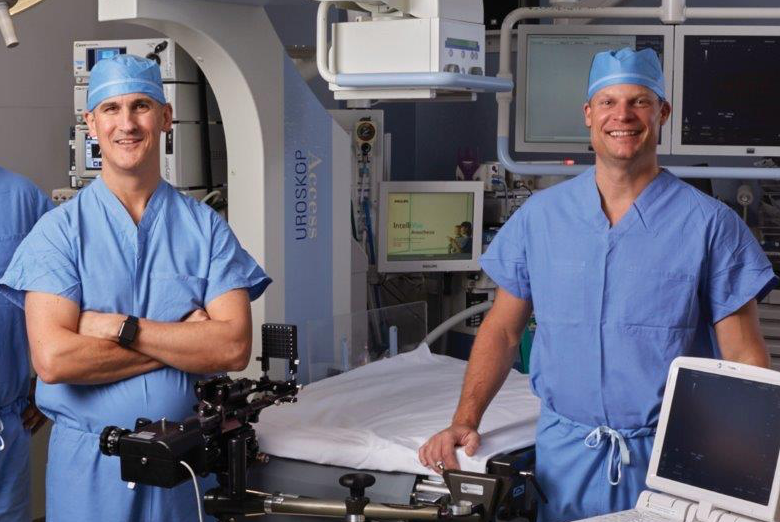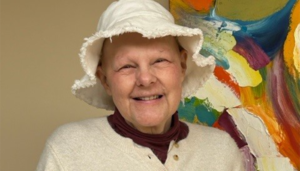When Rick Gile was diagnosed with prostate cancer in 2017, he had some decisions to make
“My doctor recommended active surveillance, but I wanted a second opinion,” says Gile, 64, of Dubuque. “I knew people who had seen Dr. Rippentrop in Cedar Rapids. From the start, I was really impressed with the doctors and the clinic.”
Dr. Jonathan Rippentrop, urologist with Physicians’ Clinic of Iowa (PCI), performed more extensive testing on Gile. “My results and a family history of prostate cancer put me at a higher risk,” Gile recalls. “Fortunately they caught my cancer early. Early detection and other factors made me a candidate for brachytherapy.”
For men like Gile who meet specific criteria, brachytherapy is a minimally invasive treatment alternative that offers good cancer control. Dr. Rippentrop’s colleague, Dr. Thomas Richardson, has been treating prostate cancer with brachytherapy for 20 years. He explains, “With brachytherapy, we implant radioactive seeds in the prostate gland. The radiation energy destroys the cancer cells, with very little radiation effect on surrounding tissue. The seeds are implanted without a surgical incision and the patient goes home the same day.”
Gile quickly decided brachytherapy was right for him. “As a widower living by myself, the least invasive option meant I wouldn’t need as much help at home. Brachytherapy has fewer side effects, too.”
Gile’s cancer was treated by Dr. Richardson, as well as the team at St. Luke’s Nassif Radiation Center. The seeds are implanted in precise locations guided by an ultrasound probe and a computer plan designed specifically for the size of each patient’s prostate. The procedure is performed under general anesthesia.
“They put you under so you don’t feel anything,” says Gile. “The next day I was up and around. My daughter and I even went out to lunch!”
Dr. Richardson agrees recovery is usually very quick, with patients back to normal activities within days. And while surgical removal of the prostate can lead to stress incontinence, he says there is little risk of that with brachytherapy.
Dr. Richardson adds, “We typically spend 40 to 60 minutes going over treatment options with patients. We educate them about the different treatments appropriate for them and let the patient decide.”
Rick Gile is glad he chose brachytherapy—and glad he chose PCI and St. Luke’s Radiation Center for his care. “They really go out of their way for you. Because I live in Dubuque, they made things easy by scheduling my appointments with different doctors all on the same day.”
“Brachytherapy can be very effective for suitable patients while minimizing side effects,” says Dr. Richardson. “We’re proud to offer this treatment option at St. Luke’s Radiation Center.”
A second opinion can help you fully explore treatment options so you can feel confident about the decisions you’re making. Call Nassif Community Cancer Center at (319) 558-4876 to connect with experienced doctors, surgeons and other cancer experts who collaborate with us in the fight against cancer.







